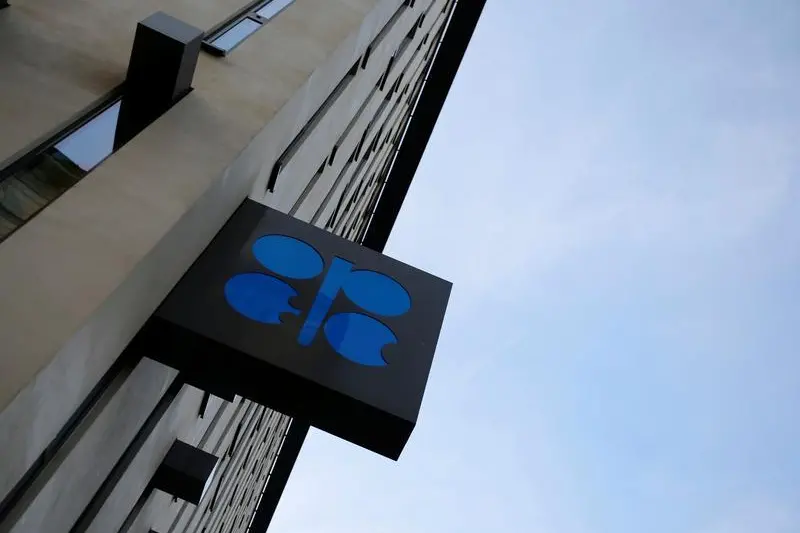PHOTO
The first key event of the past week was the announcement of the auction of 50 million barrels of crude oil from the US Department of Energys strategic petroleum reserve, of which 32 million barrels will be an exchange over the next several months, releasing oil that will eventually return to the SPR in the years ahead.
Another 18 million barrels will be an acceleration into the next several months of a sale of oil that Congress had previously authorized.
Other consumer countries, including India, South Korea, Japan, China and the UK, have reported similar plans, but on a substantially smaller scale. In addition, China remains noncommittal on SPR release. According to a foreign ministry spokesman: China will organize a release of crude oil from state reserves according to its own actual needs.
Selling from SPR was an expected event, so the inherently negative news sparked a backlash and oil prices rallied after the US said it would release crude from strategic reserves. Since this factor was already considered by the market in early November, by the close of trading on Tuesday, West Texas Intermediate traded at $78.5 a barrel up 2.3 percent on the day while the Brent benchmark traded at $81.33 a barrel up 2 percent.
This means that traders are unafraid of such a volume of additional supply from the US and its allies since it will not be able to eliminate completely the existing deficit in the oil market. Goldman Sachs has already called the announced volume a drop in the ocean, saying that the cumulative sales of consumer countries could reach 70-80 million barrels, against the expected 100 million barrels.
Indeed, the SPR release could provide temporary relief to oil markets. However, that oil will have to be replenished at some point and most probably at a higher cost which governments will pass on to consumers and industry.
The second vital event of the past week was the news that a new COVID-19 variant discovered in Southern Africa might dampen economic growth and trigger another demand slump. Against this background, several countries are already restricting air traffic with South Africa, and the World Health Organization will hold an emergency meeting to discuss the impact of the identified strain on existing treatments and vaccines used.
At the same time, the new strain was identified at a time when European countries are struggling with a new wave of cases. Earlier, Austria announced the introduction of a lockdown, while Germany and the Netherlands imposed restrictions on people who have not been vaccinated against COVID-19.
OPEC+ has repeatedly said that one of the risks is a new surge in COVID-19, which could undermine oil demand at a time when the coalition is increasing production. For instance, Saudi Energy Minister Prince Abdul Aziz bin Salman told Bloomberg in an interview last month: We dont take things for granted. We still have COVID-19, there are still lockdowns, and jet fuel supply remains constricted. So, were not yet out of the box and were not out of the realm of COVID-19.
As a result, on Friday oil prices experienced one of their worst trading days in recent memory, sinking across the board by over 11 percent. WTI traded at $68.15 per barrel down 13.06 percent on the day and around $8 per barrel on the week. The Brent benchmark traded at $72.72 per barrel down 11.55 percent on the day and more than $6 per barrel on the week.
Indeed, following the remarkable failure of the SPR release, which intensified prices instead of lowering them, resurgence of coronavirus fears about a new variant have now brought about SPR sale objective.
For now, the oil market awaits the OPEC+ decision.
So far, OPECs Economic Commission Board estimated that the SPR releases carried out by the US and its allies will only inflate the global crude surplus over Q1 2022, potentially paving the way for a slower-than-assumed OPEC+ production rollout coming up.
It expects that the surplus in oil markets in December will be 400,000 barrels per day and will increase to 2.3 million barrels per day in January and 3.7 million barrels per day in February if consumer countries continue to sell oil from reserves.
Even before the release of oil from strategic reserves, the global oil market was predicted to shift to oversupply in the coming months.
The alliance is not yet considering the possibility of a pause in the monthly increase in production of 400,000 barrel per day. But the current situation may complicate the negotiation process at the next meeting of the group on Dec. 2 and if the new COVID-19 variant becomes a big problem, the alliance could abandon its current production strategy and even lower production quotas.
This is not a baseline scenario, but the likelihood of such a decision has grown, given the expectations of an oil market surplus as early as Q1 2022, the new COVID-19 variant, and the surge of coronavirus cases in Europe with lockdowns in Germany not being ruled out.
In addition, a number of countries participating in the OPEC + deal, in particular Saudi Arabia and Russia, may advocate a change in the plan to restore oil production as part of the deal.
Dr. Namat Al-Soof is an Iraqi oil expert with long experience in upstream and market analysis. He held senior analyst positions at OPEC, IEF in Riyadh, and OPEC FUND for International Development. Currently, he is a consultant to a number of companies in the oil industry.
Copyright: Arab News 2021 All rights reserved. Provided by SyndiGate Media Inc. (Syndigate.info).





















